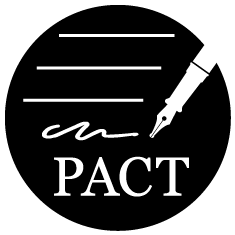BANGIYA SAHITYA PARISAD
243-1, UPPER CIRCULAR ROAD, CALCUTTA-6.
The 31st July 1948.
No. 14/[unclear]
Dr.Rajendra Prasad,
President,Constituent Assembly and President, I.N.Congress,
New Delhi.
Dear Sir,
The Bangiya Sahitya Parisad (or Academy of Bengali Literature) as the most authoritative body of experts on the Bengali[unclear] Language and literature, is of opinion that “Bande Mataram” and not “Jana-gana-mana-adhinayaka” ought to be the national son[unclear] of India. The fact is indisputable that Bande Mataram has been the war-cry of the soldiers who have fought for India’s freedom ever since the Bengal Partition Agitation of 1905, and that Bande Mataram has been the last word on the lips of our political martyrs as they have mounted the scaffold under British rule. This is true of every province of India and is not a local pecularity of Bengal. Not so the song Jana-gana-, whatever its literary merits may be.
The national song must be judged solely by its infulence on the spirit. Fro[unclear] this point of view Bande Mataram is incomparably superior to Jana-gana. Bande Mataram gives a trumpet call like the French national song – Allons, enfants de la patrie, whi[unclear] the French army still sings when marching to battle; it warms the blood and nerves th[unclear] heart to action, to stoic endurance, and to forgetfulness of all sectarian difference the call of the motherland. Jana-gana, on the other hand, sounds like a Sufi sermon, its slow long-drawn cadences and interminable lines; it induces philosophic calm and philosophic repose. It can never act as a trumpet -call to action.
From the philoslogical point of view, Bande Mataram having a larger Sansk[unclear] Vocabulary, can be more easily understood by the people of India outside Bengal, whil[unclear] Jana-gana, by reason of its containing more of homely Bengali words, must sound unintelligible in many parts in provinces where Bengali is not spoken. It was a foolish started during the “Divide and rule” regime that Bande Mataram is an idolatrous son[unclear] that it was a challenge to the Muslims. The falsity of this theory (started by Dr. [unclear]son) has been shown by Mahatma Gandhi in course of his post-prayer speech delivered
P.T.O.
Woodlands, Alipore, Calcutta on the 23rd August 1947.
The relevant portion, in his own handwriting, is reproduced photog[unclear]phically below.
Yours faithfully,
[signature]
Hony. Secretary.
Enclo – Photos
+[unclear]
Typed copy of [unclear]
GANDHIJI’S SENTIMENT WITH REGARD TO BANDE MATARAM
While Gandhiji was in Calcutta during August 1947, some Hindus raised objection against the cry of Allahu Akbar, and some Muslims against Bande Mataram. In couse of his after-prayer speech delivered at the Woodlands, Alipore on 23-8-47, Gandhiji referred to both these objections. The report which he prepared for the Press was in his own handwriting. The relevant portion is reproduced below.
He then came to Bande Mataram. This was no religious cry. It was a purely political cry. The Congress had to examine it. A reference was made to Gurudev about it. And both Hindu and Muslim members of the Congress Working Committee had to come to the conclusion thatits opening lines were free from any possible objection. And he pleaded that they should be sung together by all on due occasion. It should never be a chant to insult or offend Muslims. It was to be remembered it was the cry that had fired political Bengal. Many Bengalis had given up their lives for political freedom with that cry on their lips. Though therefore he felt strongly about Bande Mataram as an ode to Mother India, he advised his League friends to refer the matter to the League.High Command. He would be surprised if in view of the growing friendliness between Hindus and Muslims the League High Command objected to the prescribed lines of Bande Mataram, the national song and national cry of Bengal which sustained her when the rest of India was almost asleep and which was so far as I (he was) am aware acclaimed by both the Hindus and Muslims of Bengal.
(Notes:
1.Certain content in the document was unclear or incompletely written. The same has been marked as [unclear].
2.Typographical errors in the original document have been retained to ensure authentic reproduction of the original document.)

